
Blackstone Vice Chairman Byron Wien's Eye-Opening Surprises for 2023 Plus Invaluable Life Wisdom
Blackstone’s Byron Wien is known for his annual, and remarkably prescient, Ten Surprises. Here, he shares some fascinating 2023 predictions on U.S. presidential politics, interest rates, China, and a possible ceasefire in Ukraine. He also reveals some invaluable life lessons that have helped make him a huge success.
Byron Wien is Vice Chairman of the Private Wealth Solutions Group at Blackstone.
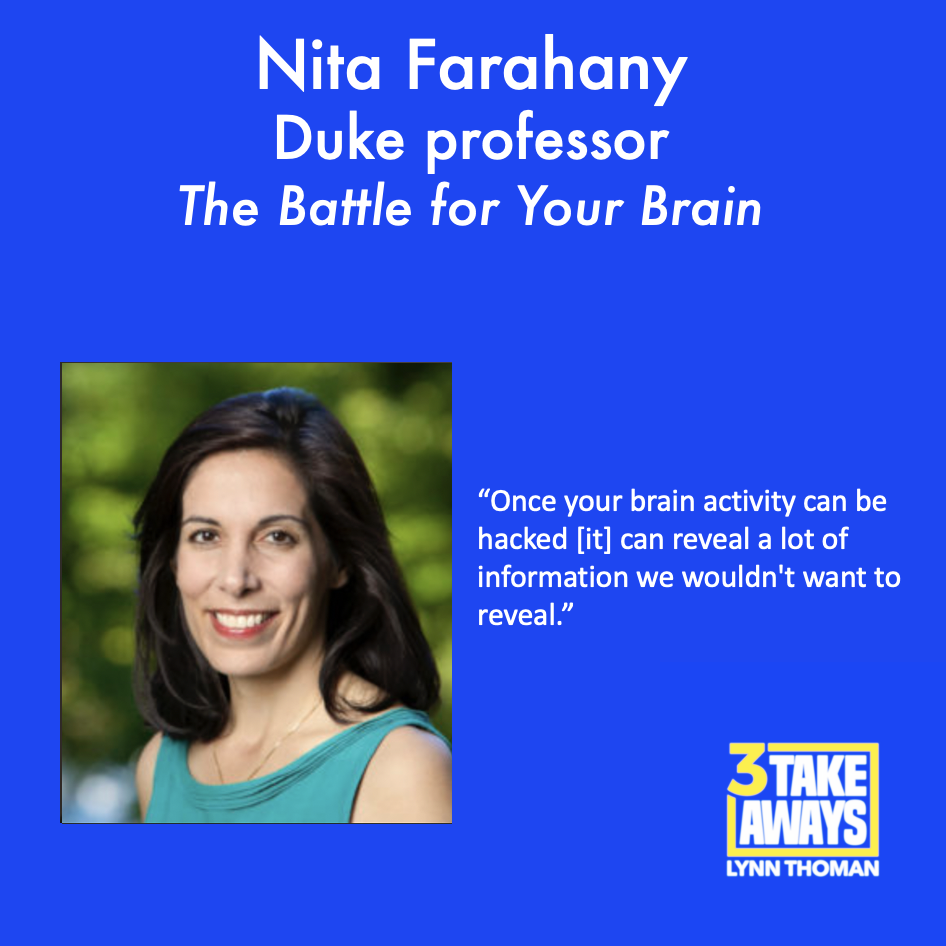
The Battle for Your Brain: The Emerging World of Neurotechnology, Brain Hacking and Thought Control
Brain sensors embedded in watches. Earbuds that decode our brainwaves. Neurotechnology that reads our emotions and thoughts, and can be used to manipulate them. It sounds like science fiction, but it’s science fact. Don’t miss this chilling and cautionary talk with Duke professor Nita Farahany, author of The Battle for Your Brain.
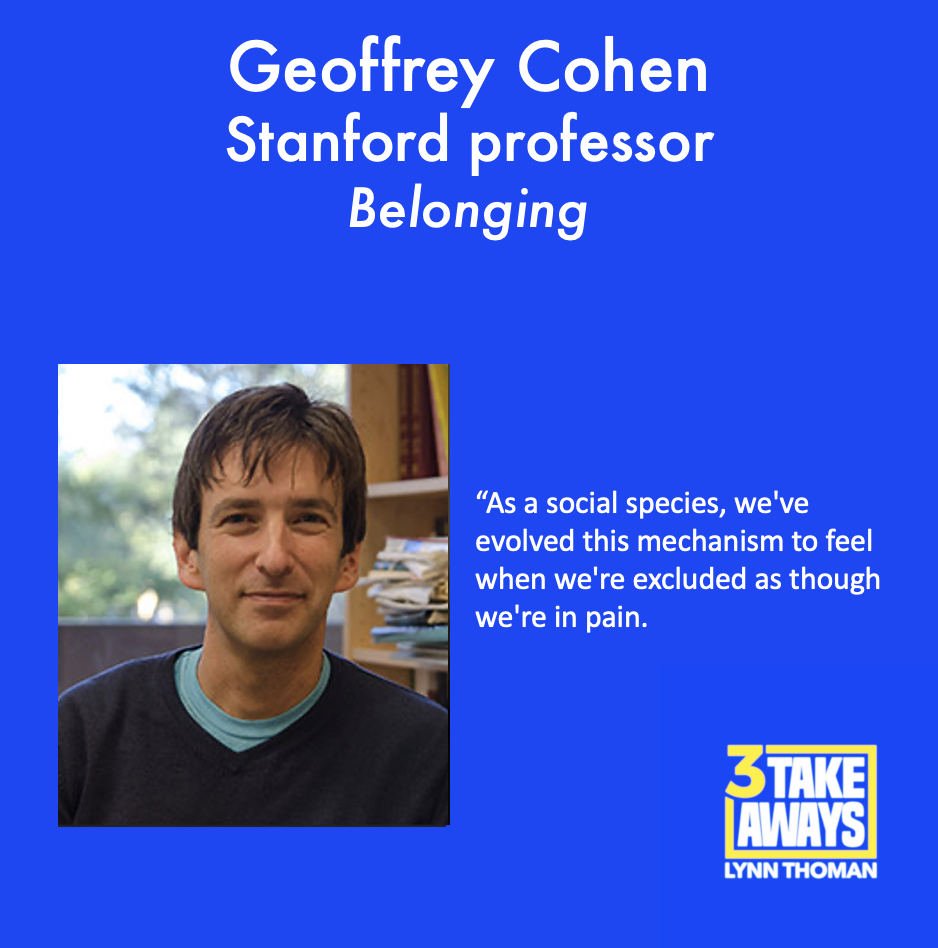
Belonging: How To Combat The Serious Isolation That’s Wreaking Havoc on Our Health and Happiness
We are biologically wired to need connection with others, but live in an age of serious and debilitating isolation. What are the ramifications of this to our health and happiness, and even to our longevity? Stanford’s Geoffrey Cohen brilliantly diagnoses the problem and offers stunningly simple solutions.

Former Vice Chair of the Federal Reserve Alan Blinder on Cryptocurrencies, Soft Landings and What's Really Happening with the US Economy Now.
The one and only Alan S. Blinder, former Vice Chair of the Federal Reserve and member of President Clinton’s Council of Economic Advisors, shines a brilliant light on some of today’s hottest economic topics — including the politicization of economic policy, the criminality of cryptocurrency, the likelihood of a soft landing, the prospect of a national digital currency, and more.
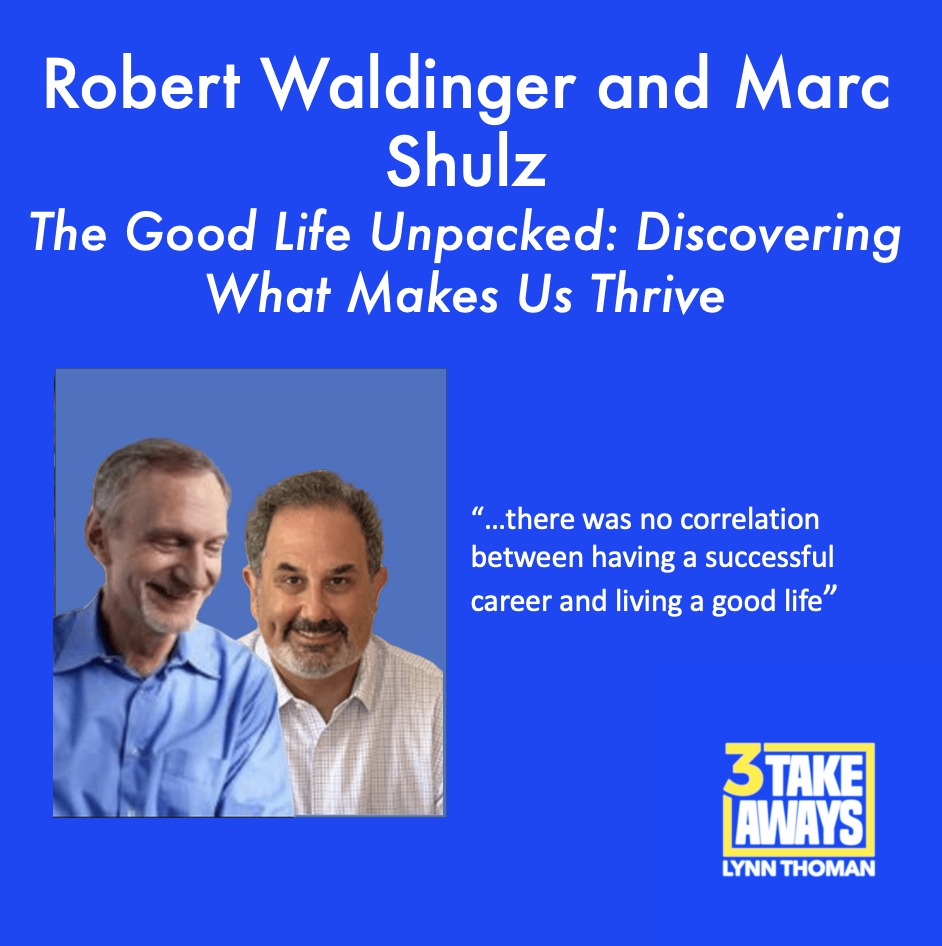
The Good Life Unpacked: Discovering What Makes Us Thrive with the Heads of Harvard's 80-Year Study
Unlock the secrets to a fulfilling life with Robert Waldinger and Marc Shulz, the heads of Harvard’s 80-Year Study of Adult Development, the longest, most in-depth, longitudinal study of human life and thriving ever done. Discover what a good life is, and how we can all have a better one. Even small choices, it turns out, can shape our lives and help us thrive. Learn the simple ingredients that make a good life, the U-shaped curve of happiness and how it's never too late to start. Get ready to be inspired and leave with three actionable takeaways!
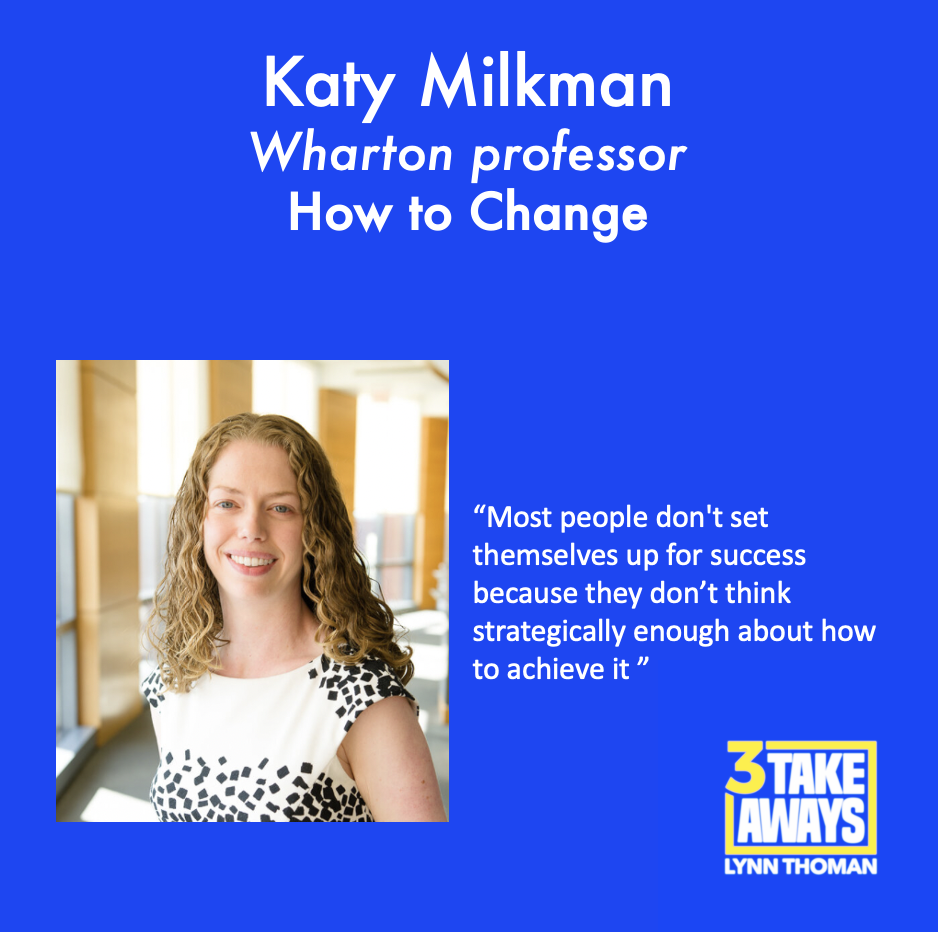
How to Change: An Expert on the Science of Personal Change Reveals Proven, Powerful Strategies
Deep personal change that enables you to achieve your goals is absolutely possible. The key: Identify what’s standing in your way, then employ strategies to overcome it. Here, Katy Milkman, Wharton professor and author of the bestseller How to Change, shares many of these powerful strategies. Here’s one: Make hard things fun.
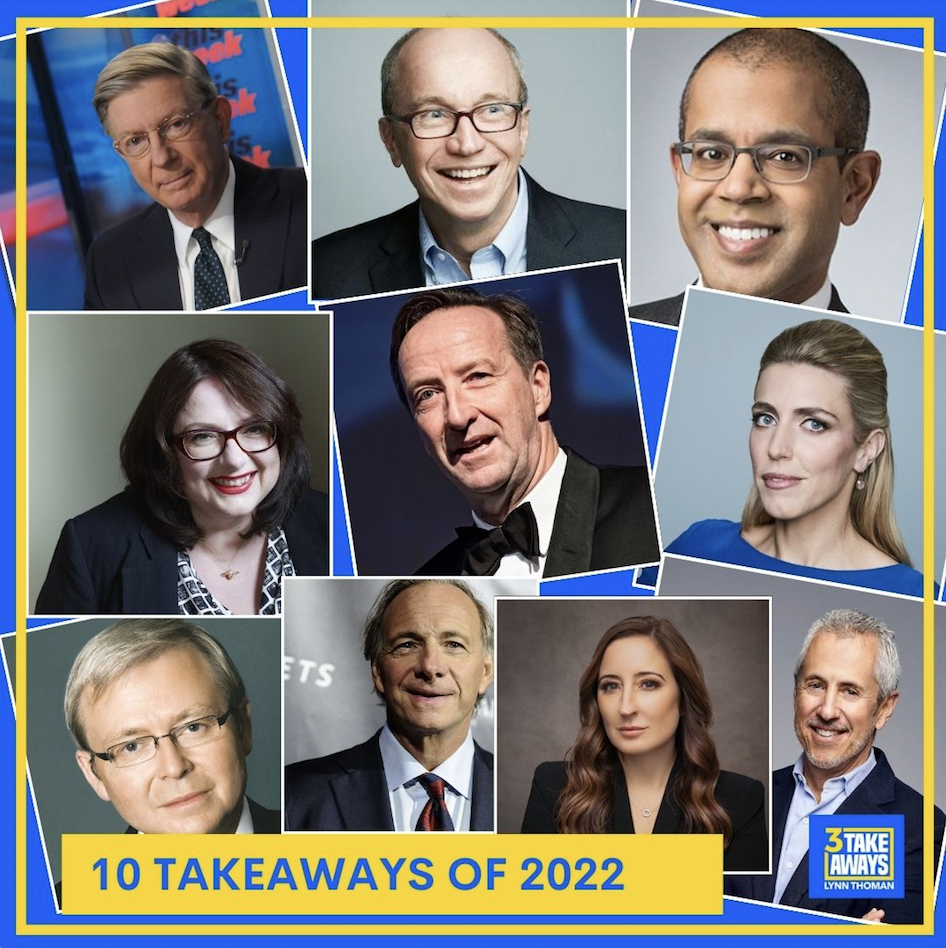
Which are the 10 Most Powerful and Compelling Takeaways of 2022? Listen and Find Out.
3 Takeaways features revealing conversations with the world’s foremost thinkers, business leaders, writers, politicians, scientists and other newsmakers, who each share three takeaways they consider vital. In this special year-end episode, we present the 10 most powerful and compelling takeaways of 2022.
Can you guess which takeaway is from each guest? The guests include:
Former Prime Minster of Australia
Former Chief of MI6
Founder of the world's largest hedge fund
7 other amazing guests

Superabundance: Separating Fact From Myth About Human Flourishing on an Infinitely Bountiful Planet
Contrary to conventional wisdom, we are not living in an age of dwindling resources. Generations of people have been taught that the world's rapidly growing population is consuming the planet's natural resources at an alarming rate. But after analyzing the prices of hundreds of commodities and products over the last 100 years, Marian Tupy and Gale Pooley found that resources became more abundant as the population grew.
To their surprise, they found that we create ever more value out of natural resources, and that now is a time of superabundance and human flourishing. Don’t miss this compelling rationale for optimism.

Chip War: the Fight for the World's Most Vital Technology and the Staggering Vulnerability of the U.S.
The world as we know it relies on computer chips, and the most important ones are made largely in Taiwan. This renders the U.S. shockingly vulnerable as China continues saber rattling in the region. Don’t miss this enlightening talk with economic historian and author Chris Miller.

What Does the Work of The Future Look Like? With MIT Professor David Autor
Why will tech and automation never lead to the demise of human work? What qualifies as “good” work? What role will robots and AI play in the fast-approaching future? David Autor, MIT professor and co-chair of the MIT Task Force on The Work of The Future, provides answers in this riveting and enlightening conversation.

Is This Time Different? Eight Centuries of Financial Folly with Famed Economist Ken Rogoff
Harvard economics professor and former IMF Chief Economist Ken Rogoff is one of the world’s preeminent economic thinkers. Here he brilliantly dissects today’s U.S. economy and bluntly explains what must happen to tame inflation and sustain growth – and the major role China may play.
He is the co-author of This Time Is Different: Eight Centuries of Financial Folly.
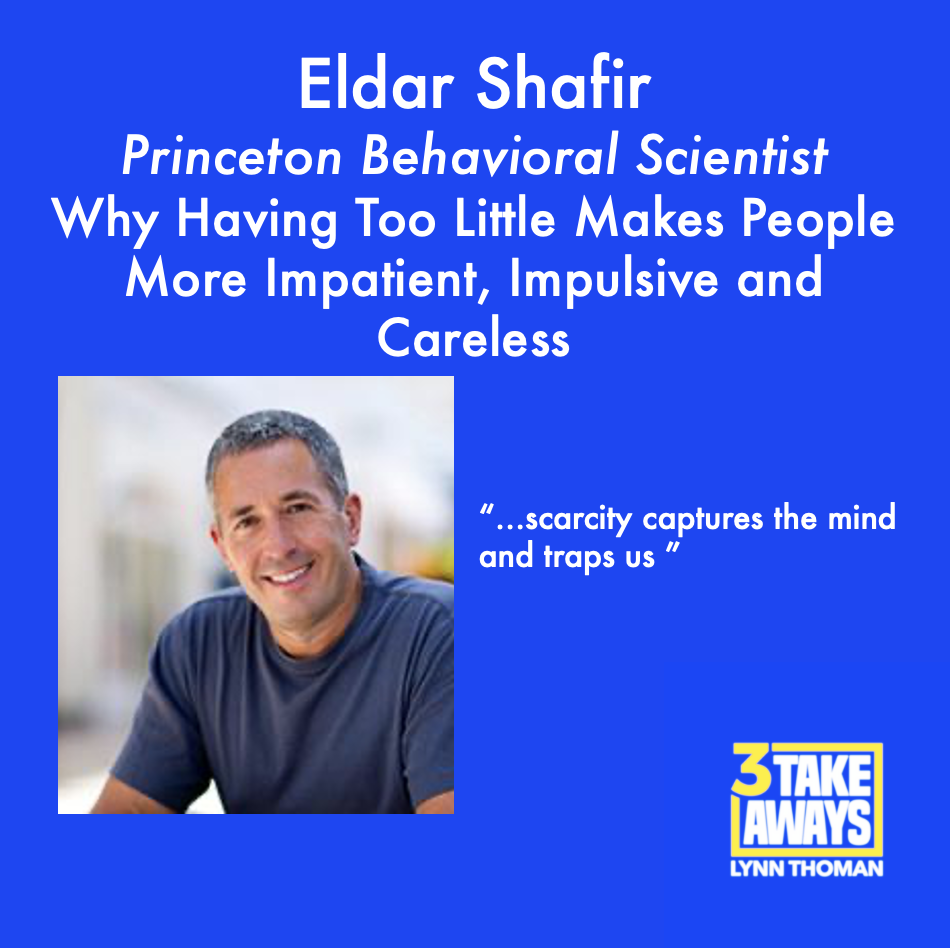
Why Having Too Little Makes People Perform Worse and Become More Impatient, Impulsive and Careless: Princeton Behavioral Scientist Eldar Shafir
Learn how scarcity of anything - money, food or social connections - affects our daily lives and leads us astray. Scarcity reduces both intelligence and control. Having too little preoccupies and taxes the mind, making life much harder. "Even smiling and being pleasant is hard when your mind is taxed. The employee snaps at rude customers ... The parent snaps at the child ... The server rings up the wrong item.”
Find out about the latest cutting edge behavioral science and how we can all manage scarcity for better satisfaction and success with Princeton behavioral scientist Eldar Shafir.

Harvard Business School’s Bill Sahlman: What I’ve Learned Reading 10,000 Business Plans and Investing in Hundreds of Startups
Of the 10,000 business plans Bill Sahlman has read, only 3 companies met their plan. Find out what it takes to succeed. Entrepreneurs have to be really good at running tests and execution trumps idea. Jeff Bezos is the most effective experimentalist in history. Bill Gates did not invent word processing, the spreadsheet, or presentation graphics; rather he took ideas and out executed everyone else.
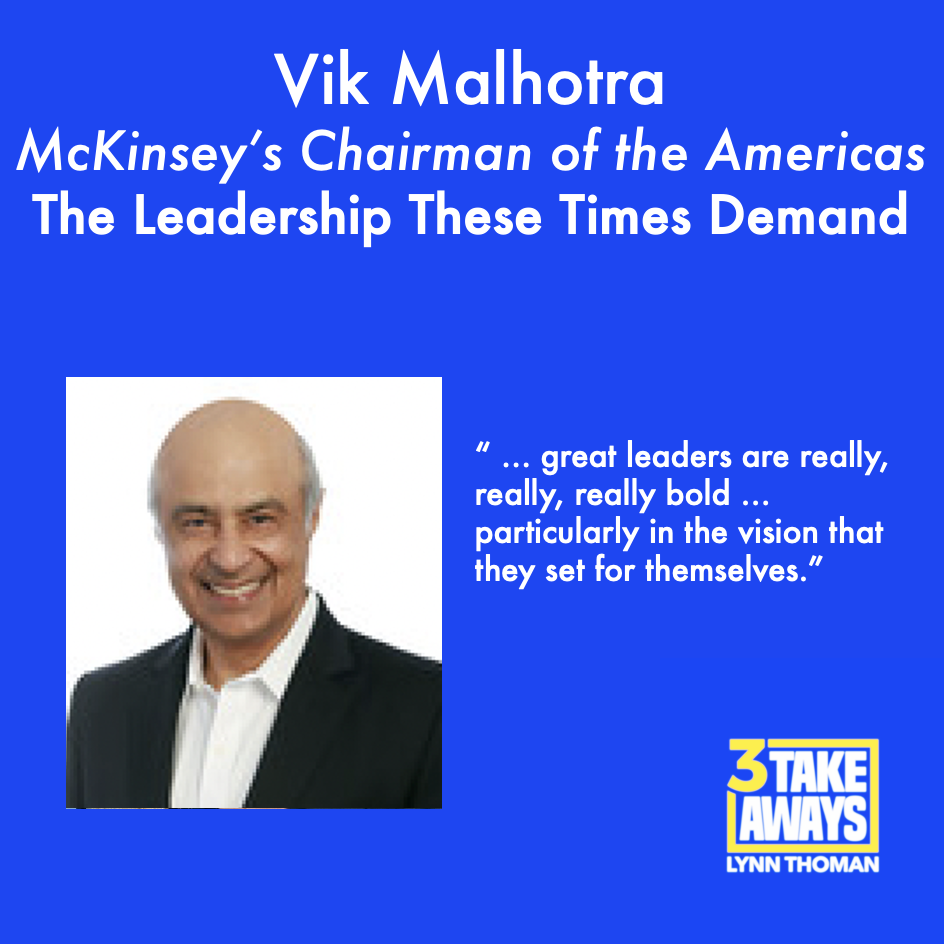
The Leadership These Times Demand – with Vik Malhotra, McKinsey’s Chairman of the Americas
Being a leader of any organization today may be more difficult than ever. What enables some leaders to thrive while others fail? What are some of the qualities and actions vital for success?
Vik Malhotra, McKinsey and Company’s Chairman of the Americas, shares his insights from interviewing and advising today’s elite business leaders. He is a co-author of the New York Times bestseller, CEO Excellence: The Six Mindsets That Distinguish the Best Leaders from the Rest.
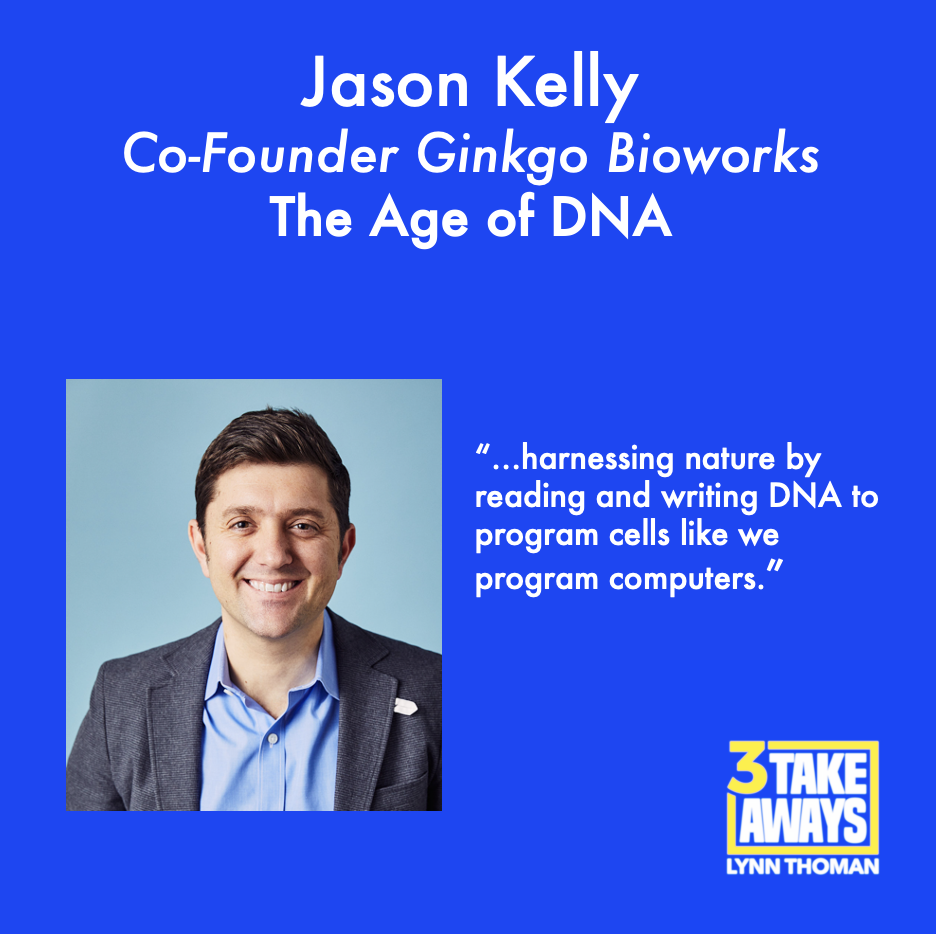
The Age of DNA: Ginkgo Bioworks Co-Founder Jason Kelly
Steve Jobs once said that the biggest innovations in the 21st century would be at the intersection of biology and technology. Nature offers tantalizing examples of the magical properties of biology—self-assembly, self-repair, self-replication and more.
Jason Kelly, co-founder and CEO of Ginkgo Bioworks, shares his dream of harnessing nature by reading and writing DNA to program cells like we program computers.
Ginkgo is a synthetic biology company that programs cells for customers in the pharmaceutical, food, agriculture and energy industries.
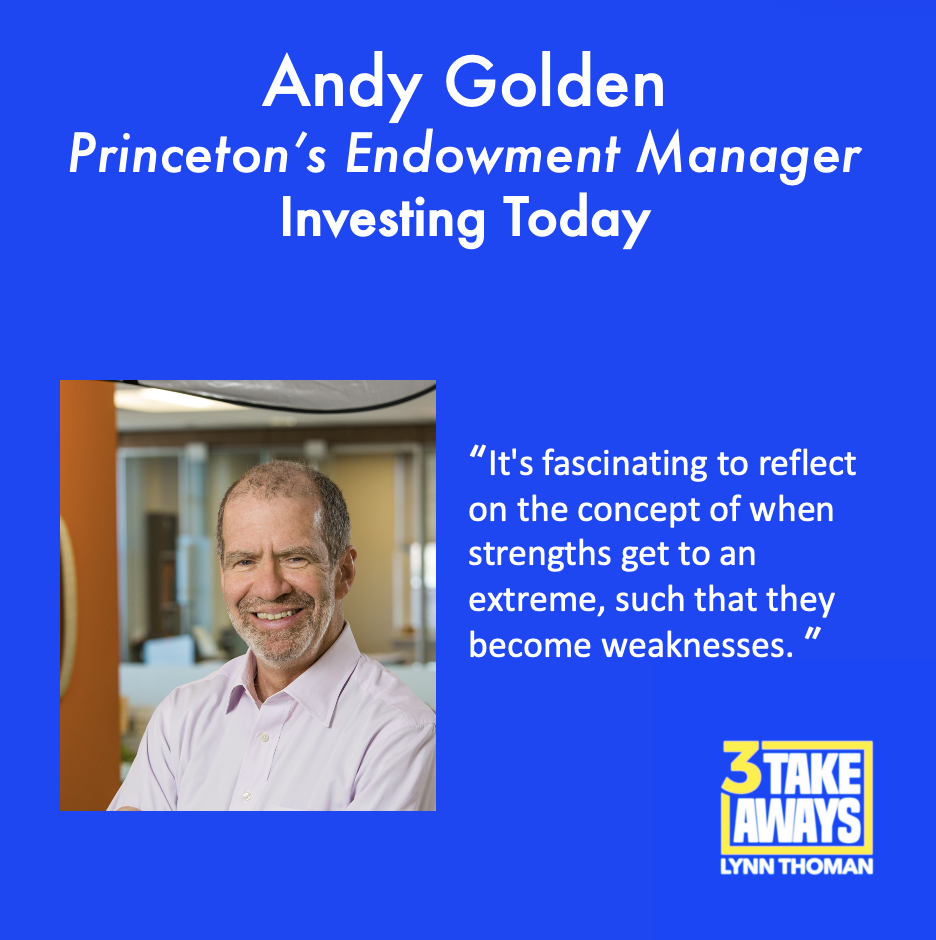
Princeton’s Endowment Manager Andy Golden on Investing Today
The president of Princeton University Investment Company (PRINCO), which manages Princeton’s endowment, talks about investing in today’s world. Andy Golden shares how he selects partners, evaluates investments, and creates a winning environment. PRINCO recently earned nearly a 50% return in a single year.
Andy also explores the differences in long term and short term investing and how a ten year time horizon is short term for endowments. PRINCO is one of the highest performing endowments in the world.
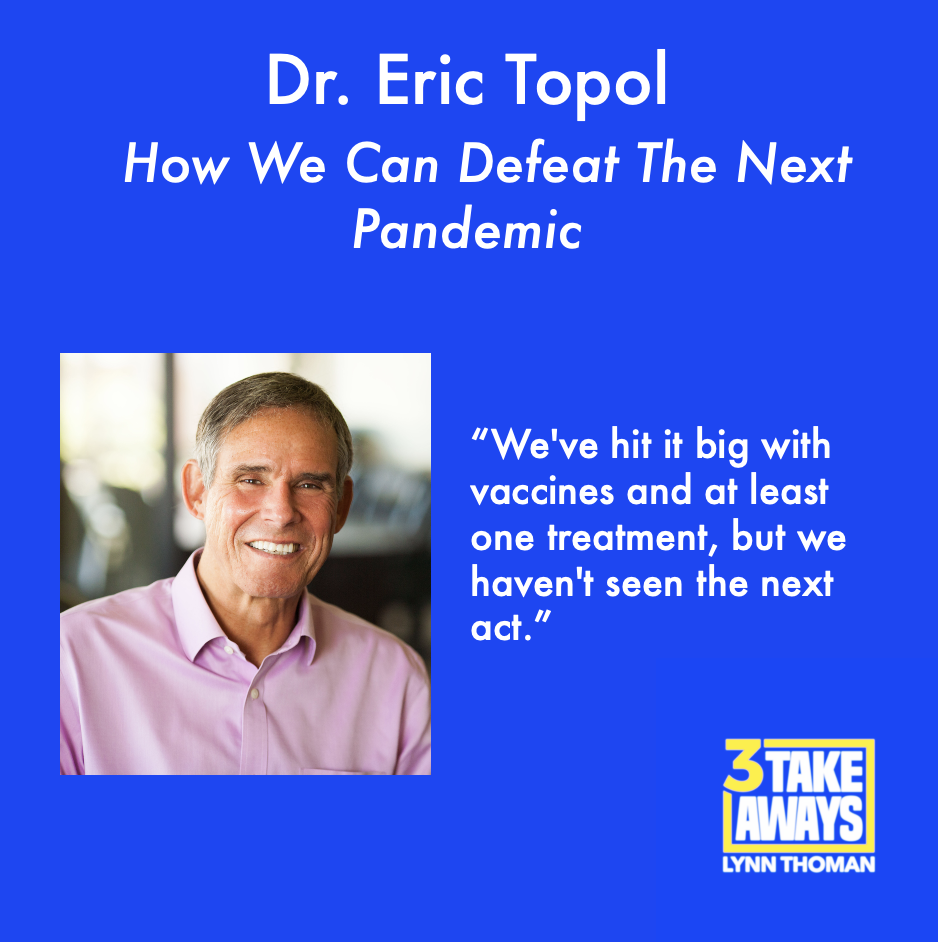
How We Can Defeat The Next Pandemic and The Future of Medicine: Dr. Eric Topol
Dr. Eric Topol explains how we can prepare for the next pandemic, including having stockpiles of variant proof vaccines for the families that are most likely to cause pandemics besides coronavirus and influenza. He also shares recent breakthroughs in medicine which will improve accuracy and diagnosis.
Dr. Topol is the founder of Scripps Research.
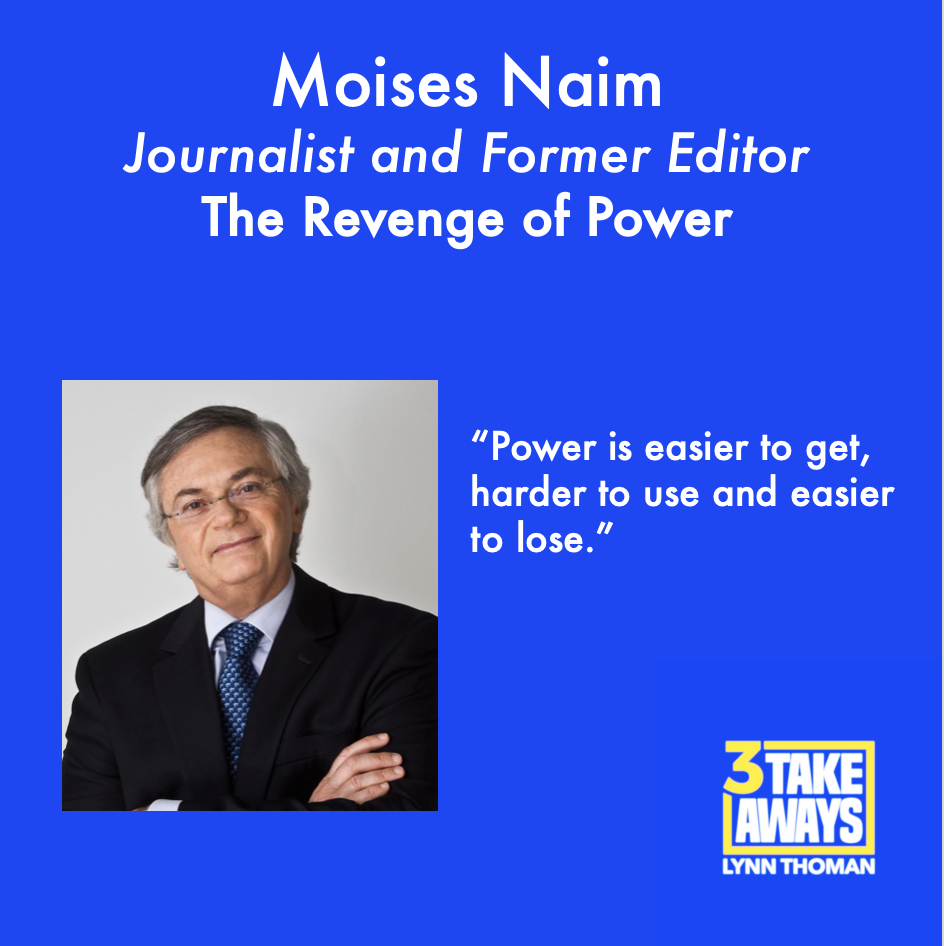
The Revenge of Power: How Power is Shifting in the 21st Century with Moises Naim
Power is easier to get, harder to use and easier to lose. Moises Naim explores how power is changing across all sectors of society. Power has shifted from country leaders to public squares, large companies to start-ups, and large armies to insurgents. Being in charge isn’t what it used to be! But at the same time, power is also concentrating in some sectors. Autocrats are reinventing politics and gaining power using 21st century tools - populism, polarization and post-truths - and undermining democracies around the world.
Moises Naim is a Venezuelan journalist and former editor-in-chief of Foreign Policy magazine. He was Minister of Trade and Industry for Venezuela, director of Venezuela’s Central Bank, and executive director of the World Bank. He is the author of The End of Power and The Revenge of Power.
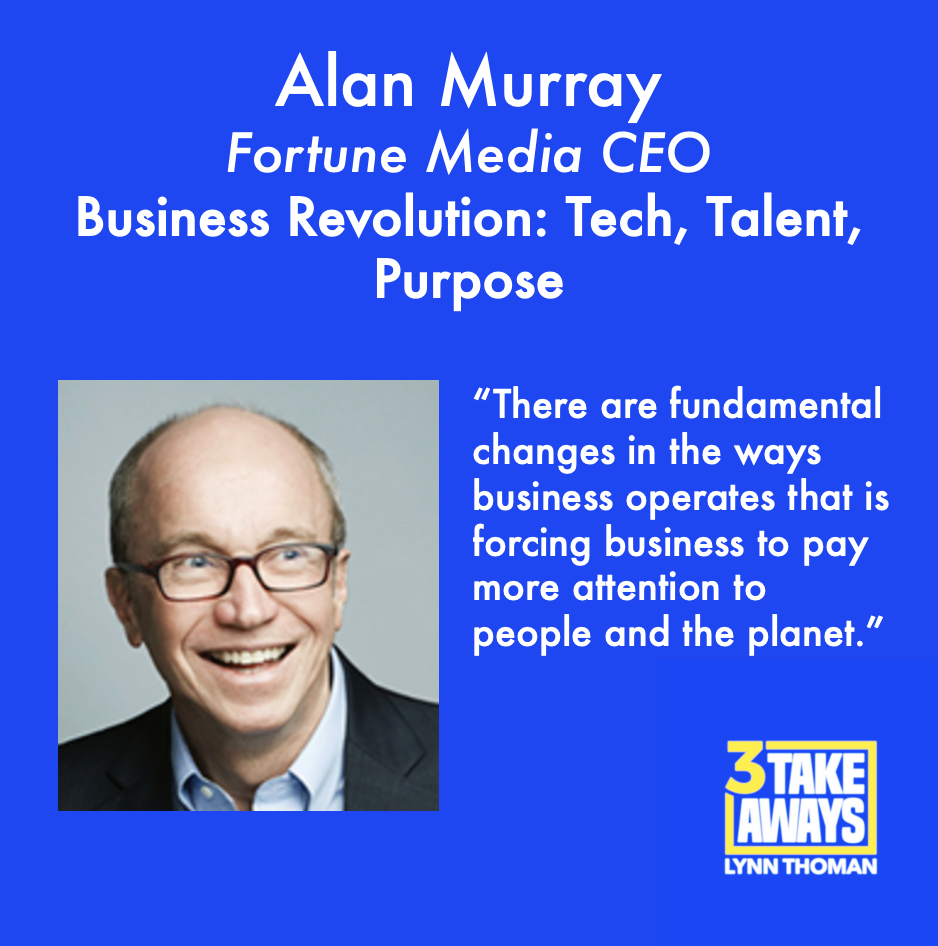
Business Revolution: Tech, Talent, Purpose with Fortune Media CEO Alan Murray
Fortune Media CEO Alan Murray shares the dramatic changes in business today due to the tech revolution, which is disrupting so many businesses, and the purpose revolution which is causing companies to re-think what they should be doing.
He believes that fundamental changes in the ways businesses operate today are forcing them to pay more attention to people and the planet.
It used to be that 80% of the value of the Fortune 500 came from physical assets but now over 85% of the value is intangible assets including intellectual property, software, brand value and the human emotional connection that comes from brand value. Since intangibles, which is where the value lies today, are things that are much more closely tied to people - it's human ingenuity that creates the intellectual property, it's human emotion that creates the brand value and the brand connection - business leaders are paying much more attention to people. Alan shares how that is changing the purpose of corporations and the role of the CEO today.
He also talks about how business has changed due to the pandemic, remote work, Black Lives Matter, rising inequality, global warming and the Ukraine Russia war.
Unless businesses are responsive to their employees, their customers and their communities, Alan believes they will lose. The biggest changes, he says, are yet to come.
His new book is Tomorrow’s Capitalist.
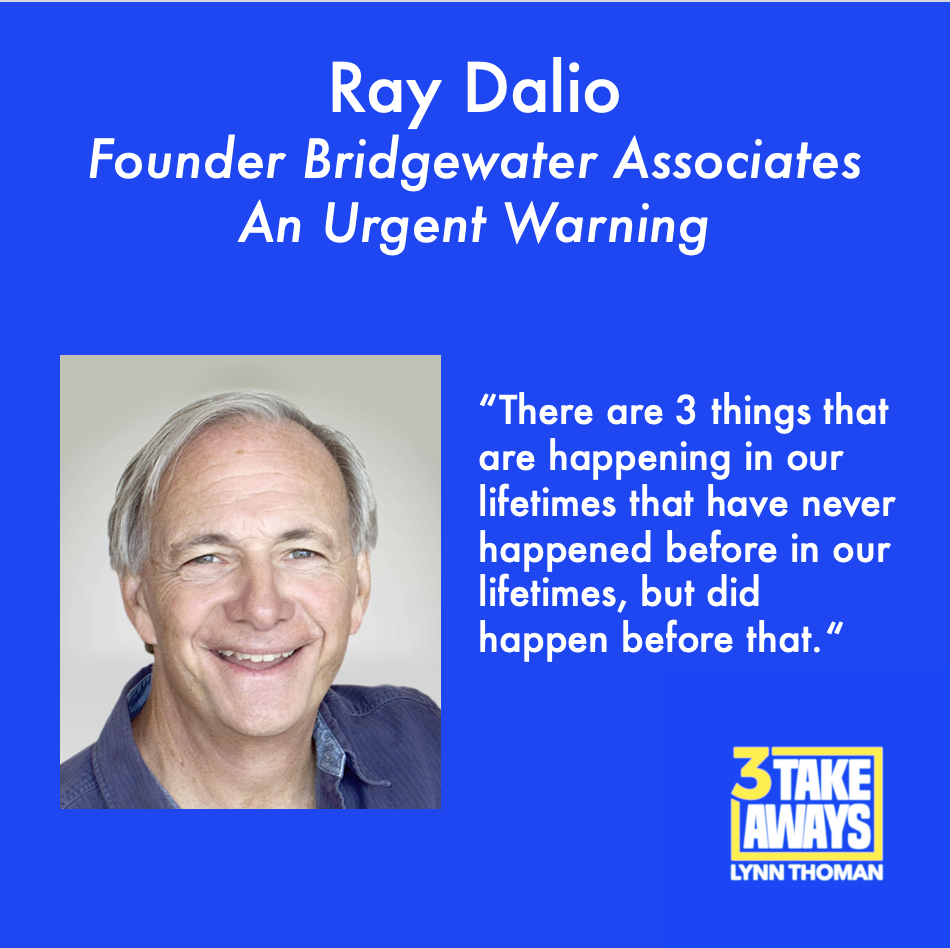
An Urgent Warning on the Times Ahead with the Founder of the World's Largest Hedge Fund: Ray Dalio
Legendary investor Ray Dalio, who predicted the 2008 financial crisis, shares a similar urgent warning about what he sees ahead. He believes the times ahead will be radically different from what everyone today has experienced in their lifetimes, and he wants people to be prepared. Bill Gates said, “…super-provocative, super-important… A lot of facts line-up to create a scary picture that’s hard to refute.”
Based on his study of the rise and fall of superpowers and history’s most turbulent periods, Ray is issuing a warning about the confluence of three major events that last happened between 1930 and 1945.
He talks about debt creation, printing money, inflation, wealth disparity, populism and the rise of a great power to challenge the existing world order.
Ray Dalio founded and built Bridgewater Associates into the largest hedge fund in the world and shares how to protect assets during the tempestuous and inflationary period ahead.
His new book is Principles for Dealing with the Changing World Order: Why Nations Succeed and Fail.
